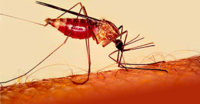-
Simple new test combats counterfeit drugs in developing countries
The World Health Organization (WHO) estimates that at least 10 percent of the drug supply in developing countries consists of counterfeit medicines, causing thousands of deaths every year; many of the deaths occur among people who unknowingly take counterfeit antibiotics and anti-malaria medicines that do not contain the active ingredient to combat those diseases; in addition to lacking the active ingredient, counterfeit medicines may harm people by containing ingredients that are potentially toxic
-
-
New U.S. biodedfense R&D network launched
On Monday, Texas A&M System dedicated a new research center which is part of a national network of centers aiming to develop strategies and products to counter bioterrorism, chemical and radiological attacks on the United States, and better strategies to deal with pandemics; the network will have facilities in Texas, Maryland, and North Carolina; the Texas dedication is the culmination of a Manhattan Project-like program for biological countermeasures, launched in 2004 by the Department of Health and Human Services; the research network aims to develop “rapid, nimble and flexible approaches” to vaccine and therapy development, and train the next generation of professionals to sustain U.S. capabilities in these areas
-
-
Demystifying viruses' copying mechanism allows new vaccines for elusive viruses
Certain kinds of viruses such as those that cause the common cold, SARS, hepatitis, and encephalitis, copy themselves using a unique mechanism, according to researchers; the discovery sheds light on a previously identified, but never-before-understood region of an enzyme associated with the process of replicating genetic material
-
-
Genetically engineered bacteria prevent mosquitoes from transmitting malaria

Malaria kills more than 800,000 people worldwide each year, many are children; researchers have genetically modified a bacterium commonly found in the mosquito’s midgut and found that the parasite that causes malaria in people does not survive in mosquitoes carrying the modified bacterium
-
-
Rattlesnakes in San Diego: potent, powerful venom a cause for concern

For the second year in a row, University of California-San Diego Medical Center toxicologists are reporting unusually powerful snake bites and unusually extreme patient reactions to those bites; since January, several patients have suffered bites with severe symptoms, such as difficulty breathing, often after a bite from the Southern Pacific Rattlesnake
-
-
Scientists show why swine flu virus develops drug resistance
H1N1-2009 is a new, highly adaptive virus derived from different gene segments of swine, avian, and human influenza; within a few months of its appearance in early 2009, the H1N1-2009 strain caused the first flu pandemic of the twenty-first century
-
-
Less costly anti-malarial drug
Malaria sickens 300-500 million people, and kills more than one million, annually; scientists are reporting development of a new, higher-yield, two-step, less costly process that may ease supply problems and zigzagging prices for the raw material essential for making the mainstay drug for malaria
-
-
Pandemic 2009 H1N1 vaccination may lead to pan-influenza vaccine
The pandemic 2009 H1N1 vaccine can generate antibodies in vaccinated individuals not only against the H1N1 virus, but also against other influenza virus strains including H5N1 and H3N2; the discovery brings closer the day of a pan-influenza vaccine
-
-
Researchers produce potential malarial vaccine from algae
Malaria affects more than 225 million people worldwide in tropical and subtropical regions, resulting in fever, headaches, and in severe cases coma and death; researchers have succeeded in engineering algae to produce potential candidates for a vaccine that would prevent transmission of the parasite that causes malaria
-
-
Malaria detection model wins Georgia Tech Spring Design Expo
Georgia Tech students design of a microfluidic cell sorter that aids in the detection of malaria; no current products exist that can be used for population screening at the desired sensitivity of buyers such as non-governmental organizations, while being both portable and non-electric
-
-
MRSA superbug spreads from big city hospitals to regional health centers
MRSA — methicillin-resistant Staphylococcus aureus — first started to appear around fifty years ago following the introduction of antibiotics, to which the bacteria has become increasingly resistant; scientists now find how the superbug spreads among different hospitals
-
-
Anti-malaria garment drives bugs away

Malaria kills 655,000 people annually in Africa; insecticide-treated nets are commonly used to drive away mosquitoes from African homes, but now there is another solution: a fashionable hooded bodysuit embedded at the molecular level with insecticides for warding off mosquitoes infected with malaria
-
-
Advanced genetic screening to speed vaccine development
Infectious diseases, both old and new, continue to exact a devastating toll, causing some thirteen million fatalities per year around the world; vaccines remain the best line of defense against deadly pathogens and now researchers are using clever functional screening methods to attempt to speed new vaccines into production that are both safer and more potent
-
-
H1N1 discovery paves way for universal flu vaccine
Each year, seasonal influenza causes serious illnesses in three to five million people and 200,000 to 500,000 deaths; university of British Columbia researchers have found a potential way to develop universal flu vaccines and eliminate the need for seasonal flu vaccinations
-
-
Bacteria found in caves could offer key to new antibiotics
Resistance to antibiotics among bacteria is a growing concern for human health; antibiotic-resistant bacteria found in one of the deepest, most isolated caves in the world could help scientists in the battle against superbugs
-
More headlines
The long view
A Shining Star in a Contentious Legacy: Could Marty Makary Be the Saving Grace of a Divisive Presidency?
While much of the Trump administration has sparked controversy, the FDA’s consumer-first reforms may be remembered as its brightest legacy. From AI-driven drug reviews to bans on artificial dyes, the FDA’s agenda resonates with the public in ways few Trump-era policies have.
